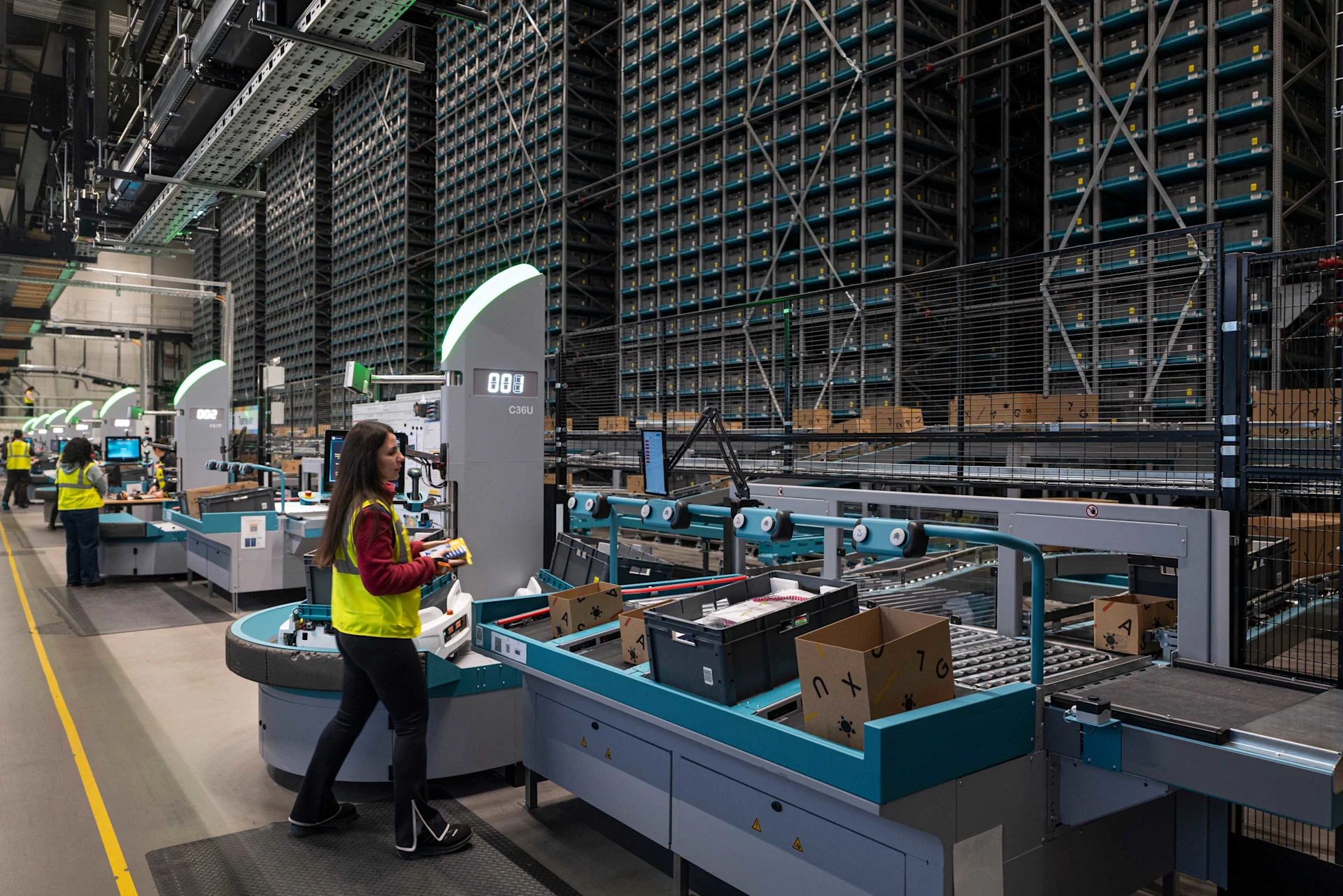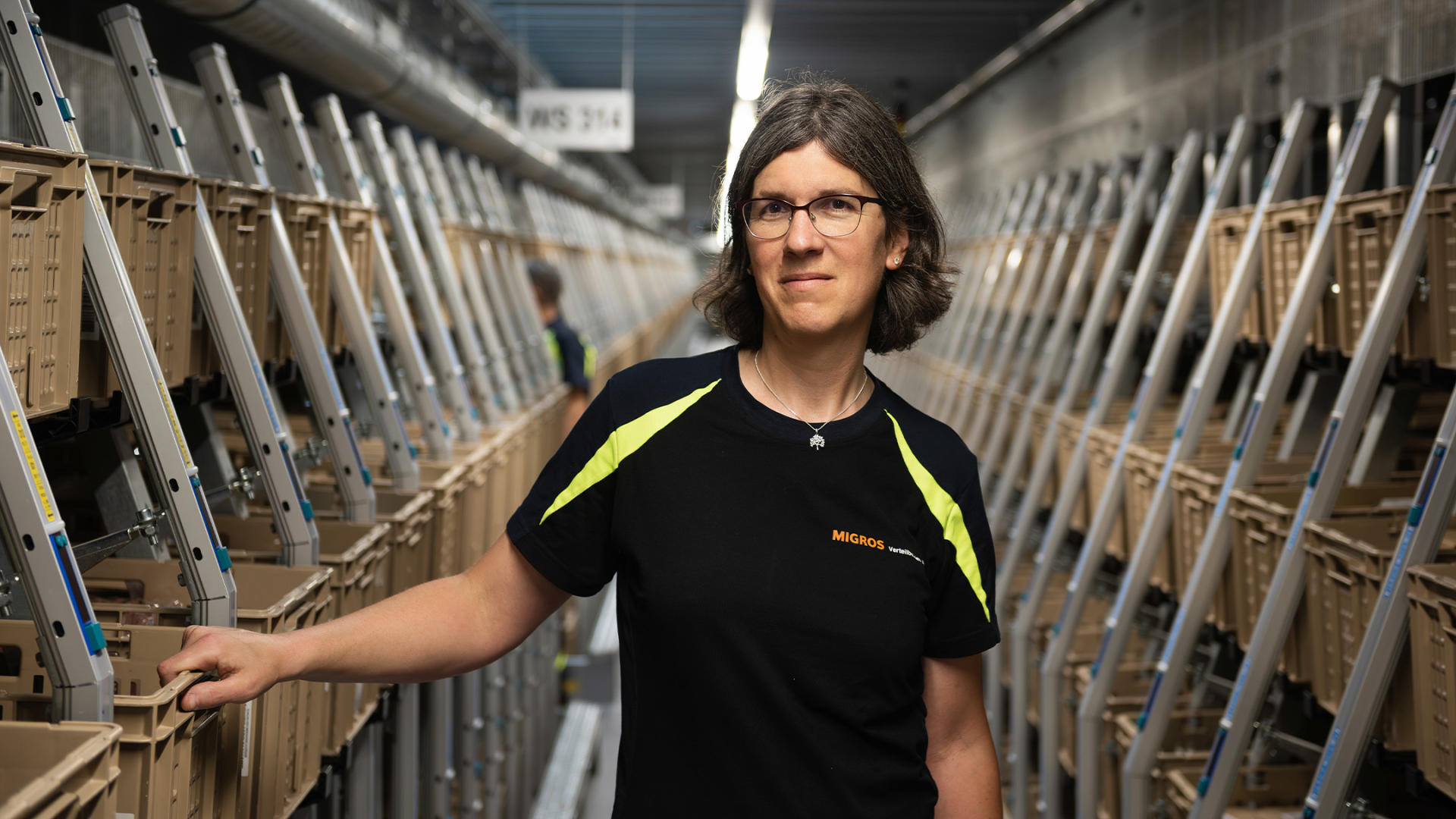
Work environment
Where our presents come from
We visited the huge Digitec Galaxus logistics centre, which is a hive of activity over the Christmas period.
navigation

Work environment
Barbara Infanger is 43 years old and is doing an apprenticeship as a logistician at Migros Verteilbetrieb AG in Neuendorf. She has Asperger’s autism and explains how this can actually often be a benefit during her everyday work.
“When I walk into a room, I immediately see all errors. It’s as though they were glowing. As a logistician, this is obviously quite convenient. An exercise was recently set up for the third-year apprentices, where 13 errors had been hidden. I happened to pass by and immediately noticed 12 of them. I had barely been in the room for 40 seconds.
This talent is a huge aid in logistics, but less so when it comes to interpersonal interactions. I have Asperger’s autism. This means that I am a verbal autistic individual – this is also called ‘Little Professor Syndrome’.
If I notice an error, I will say so immediately without being particularly diplomatic about it. I often end up offending people with this.
That sums it up quite well: it brings up the image of a child who always knows better. That’s what I was like, and I still remain that way. If I notice an error, I will say so immediately without being particularly diplomatic about it. I often end up offending people with this.”
“As a child, I had no idea why I was different to the other kids. I often felt like an alien. If you’re born blind, you won’t have any idea what the colour red looks like. People can explain it to you 100 times, but you’ll never really know. It’s like that for me, I can’t read facial expressions or gestures – non-verbal communication goes straight over my head.
If someone gives me a funny look or wants me to read between the lines, I simply won’t notice. I don’t understand what people mean if they don’t say things directly. This often leads to misunderstandings. When I was a child, it was made very clear to me when I didn’t react to things as expected. As an adult I notice that others talk about friends and group plans for the weekend. I’ve never had anything like that.”
“My diagnosis was relatively late. I was 36 and working at a small manufacturing warehouse. Until then, my professional life hadn’t really been consistent. I was constantly trying new things and never really fitting in anywhere. It was my boss at the time who first suspected that I may have autism.
It was my boss at the time who first suspected that I may have autism.
I read up on the topic and had an ‘Aha!’ moment: That’s it! The diagnosis helped me better understand myself. In therapy, I learn how to be more diplomatic. Medication gives my brain a filter so that I don’t constantly soak up all available information.”
“After a few years of working on a self-employed basis, I landed at Migros. I quickly realised that I wanted to stay here. I therefore decided to start an apprenticeship as a logistician at Migros Verteilbetrieb AG in Neuendorf – the biggest logistics centre in Switzerland. I am now 43, in my second year, and feeling content. I can put my skills to use every day here, for which I am grateful.
Everyone now knows that I have Asperger’s autism. My instructors have learned that they need to communicate with me in a more precise manner, as I won’t simply know exactly what they mean. Of course, I do often face challenges in my everyday work.
However, my motto is: I don’t like problems, so I look for solutions. The second thing to know about me is that I wasn’t always a woman. People can hear this in my voice, which sometimes leads to confusion. The fact that I am a trans woman has never been an issue here, and it certainly doesn’t need to be.
je suis heureuse de voir que Migros ne prétend pas être un employeur moderne, mais qu’elle l’est vraiment
My third apprenticeship year is starting soon. I will be able to take part in a support programme, which I’m really looking forward to. My next goal is to successfully complete my apprenticeship. I absolutely want to stay at Migros once I’ve finished.
On the one hand, because logistics is my passion. On the other, because I’m delighted by the fact that Migros doesn’t just present itself as a modern employer, but rather practices what it preaches – regardless of age, gender or diagnosis.”
Whether at a desk, in a store or in a laboratory – our work environment is diverse, just like the people behind it. Discover their stories.